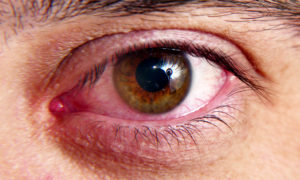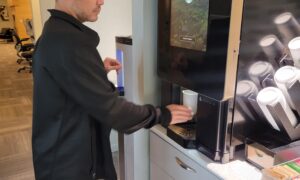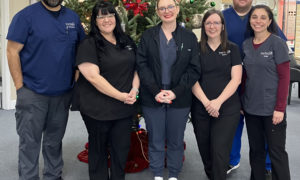By Cheryl G. Murphy, OD
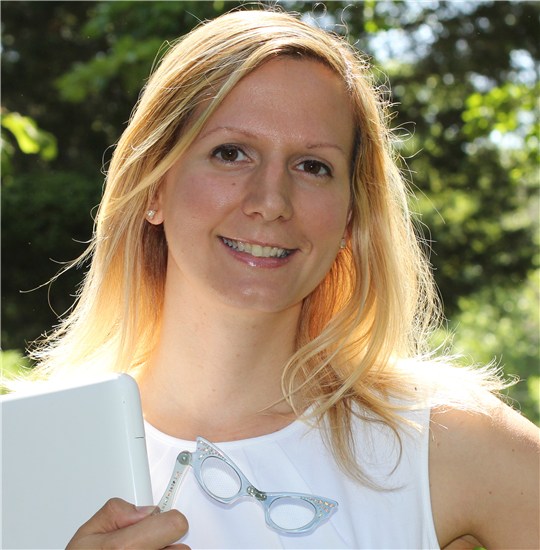
You may think exam room jokes keep gettingcornea and cornea, but they can play a vital role in patient treatment. Research shows there’s a big benefit to laughing out loud with your patients.
So, don’t stop practicing those punch lines.
I recently posted a humorous optometry cartoon online (pictured below). The cartoon depicted a pingecula who had fallen in love with the cornea next door but was hesitant to make a move toward her because of what happened to his pterygium friend, Ptery. Ptery had gotten a little too clingy to his cornea crush and she had to cut him loose. Since the cartoon is directed toward eye docs, it is a little hard to understand if you aren’t in the profession, as proven by my loving husband’s blank stare when I showed it to him.
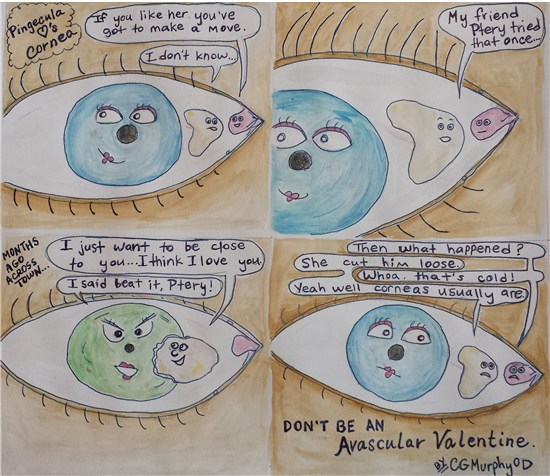 While my husband didn’t “get it,” many optometrists did, and I tracked views and comments as they spread across the internet via social media. According to my professional Facebook page, the cartoon received nearly 7,000 views and was redistributed by others on viewer pages 42 times, a record number of shares for my posts.
While my husband didn’t “get it,” many optometrists did, and I tracked views and comments as they spread across the internet via social media. According to my professional Facebook page, the cartoon received nearly 7,000 views and was redistributed by others on viewer pages 42 times, a record number of shares for my posts.
My cartoon was even translated into other languages. Wow! For once, something going viral in the eyecare realm was a good thing.
Some may say that it’s not proper to laugh about a medical condition. As doctors, we are taught to be dignified and professional. Surely, a patient’s health is no laughing matter.
However, research shows that humor in a medical setting is “far from trivial and should not be considered unprofessional.” In a 2008 study, Canadian researchers spent over 300 hours at an intensive care unit and a palliative care unit observing and interviewing the staff’s interactions with terminally ill patients and their families. What they found was that laughter really is the best medicine.
The researchers warn, however, that each situation and patient is different, and you must be sensitive to that and not joke at inappropriate times. You have to be able to “read the room.” If you doubt whether or not a joke will land, or if it will be found offensive, keep it to yourself.
However, according to the study, “Nurses and other healthcare professionals don’t need to suppress humor. They should trust their instincts about when it is appropriate. Combined with scientific skill and compassion, humor offers a humanizing dimension in healthcare that is too valuable to be overlooked.”
In my view, a little humor shared between doctors and patients (and also among medical professionals themselves) can be humanizing and heartwarming. Still, we must be mindful of certain lines of decency and humor that shouldn’t be crossed.
Should we, as optometrists, proclaim and even prescribe the benefits of laughter to our patients? Perhaps. One study showed that “the addition of an adjunct therapeutic mirthful laughter Rx to standard diabetes care may lower stress and inflammatory response and increase “good” cholesterol levels” in diabetic patients.”
Optometrists know that diabetic retinopathy itself is no laughing matter. It has been reported that there has been an 89 percent spike in diabetic eye disease from 2000 to 2010. If a chuckle here and there has the potential to help these patients, I cannot see a reason why we should not at least “humor” the researchers of this study by prescribing it.
Another study claimed that laughter may help prevent heart disease. It found that “people with heart disease were 40 percent less likely to laugh in a variety of situations compared to people of the same age without heart disease.”
Charlie Chaplin once said, “Laughter is the tonic, the relief, the surcease for pain.” I think that is true and personally, Irismore doctors would prescribe it.
References: From critical care to comfort care: the sustaining value of humour. Dean R A K and Major J E. Journal of Clinical Nursing. 17, 1088-1095. (April 2008) doi: 10.1111/j.1365-2702.2007.02090.x.
Further Reading on Humor and Health Care:
Laughter is the Best Medicine for your Heart
The Benefit of Laughter Therapy on Diabetics
Laughter and Humor as complementary and alternative medicines for dementia patients
Big Apple Circus’ Clown Care Unit
Cheryl G. Murphy, OD, practices at an independent optometric practice in Holbrook, NY. You can like her on Facebook or follow her on Twitter @murphyod. To contact her: murphyc2020@gmail.com.

